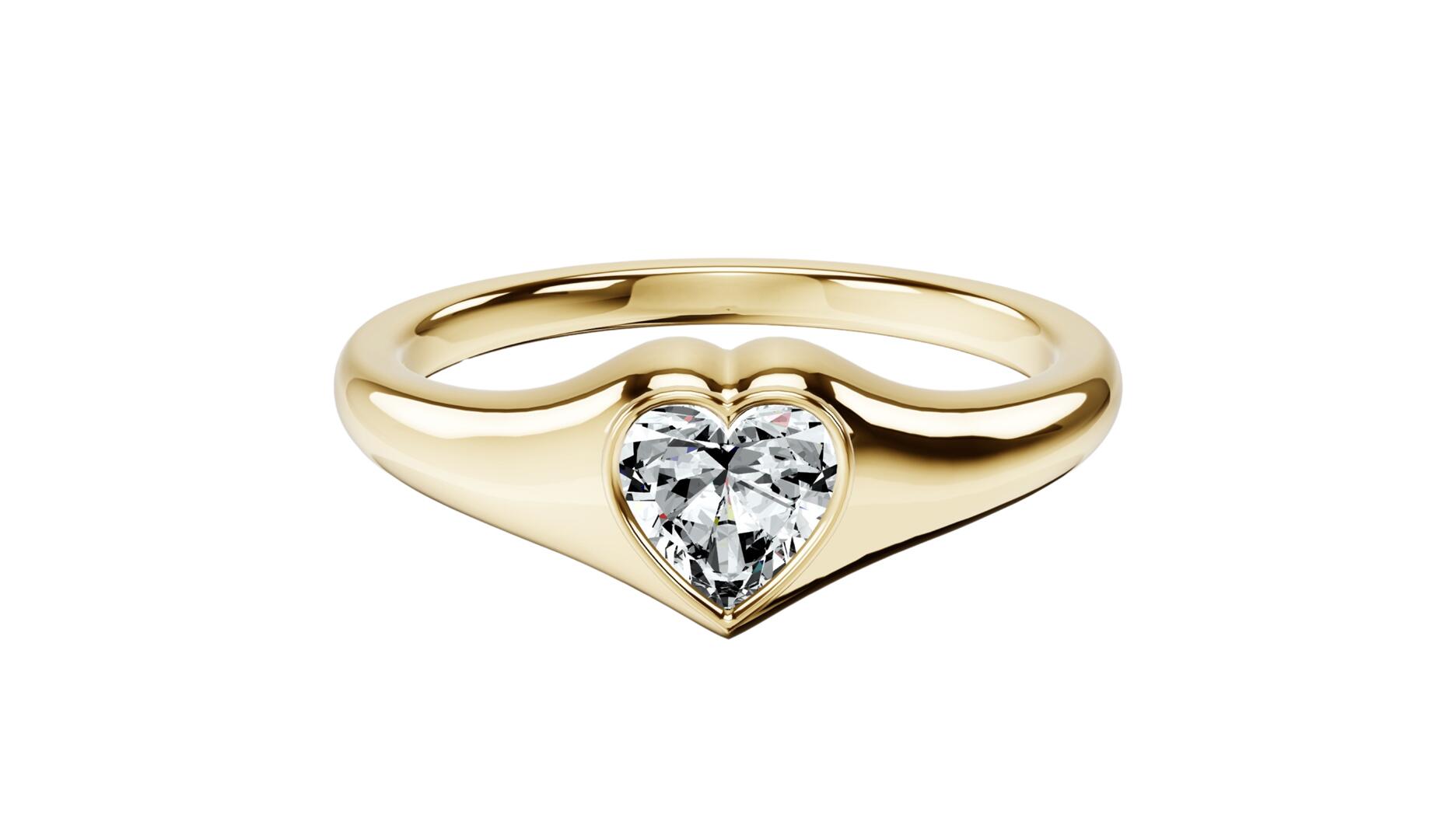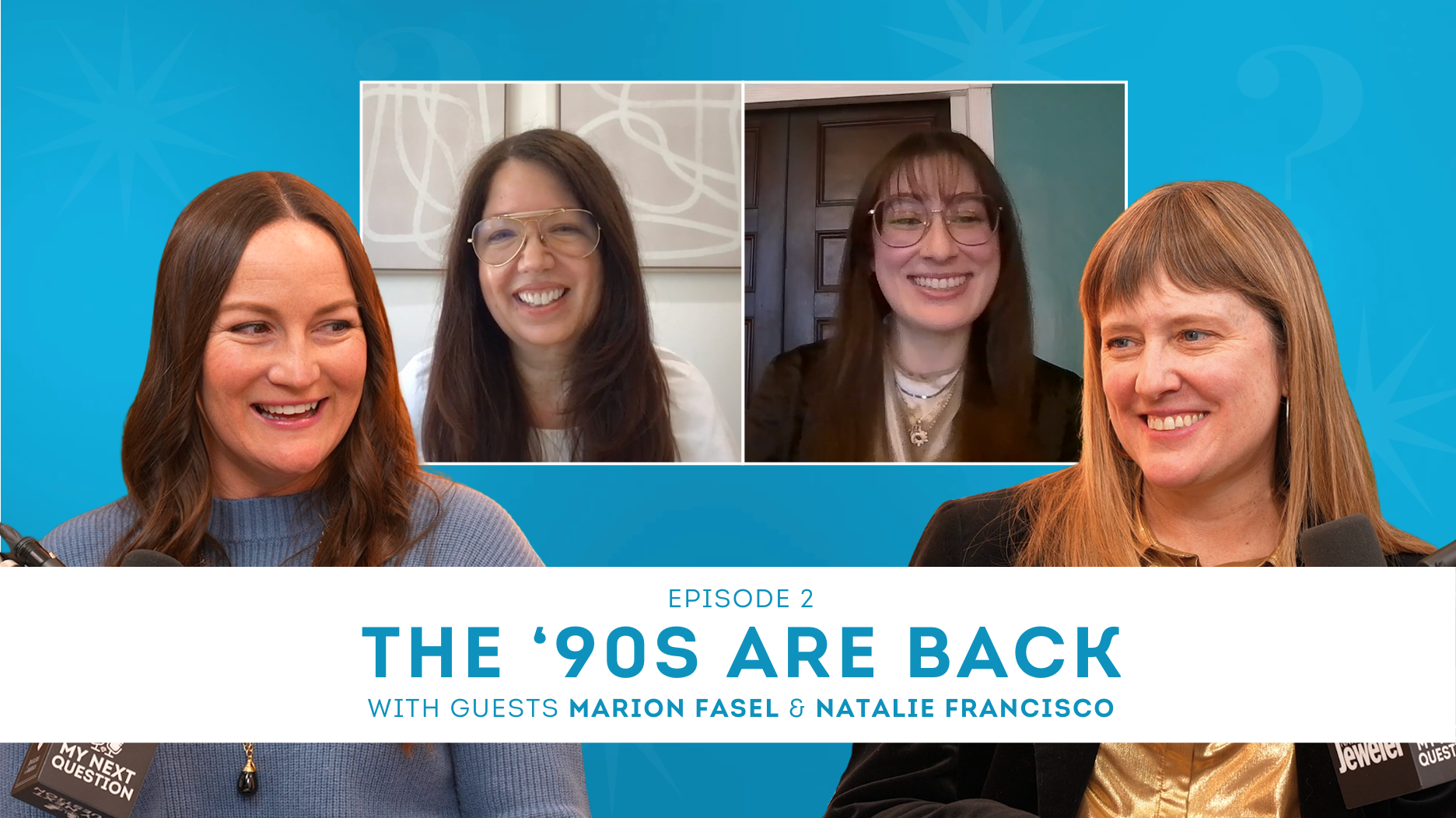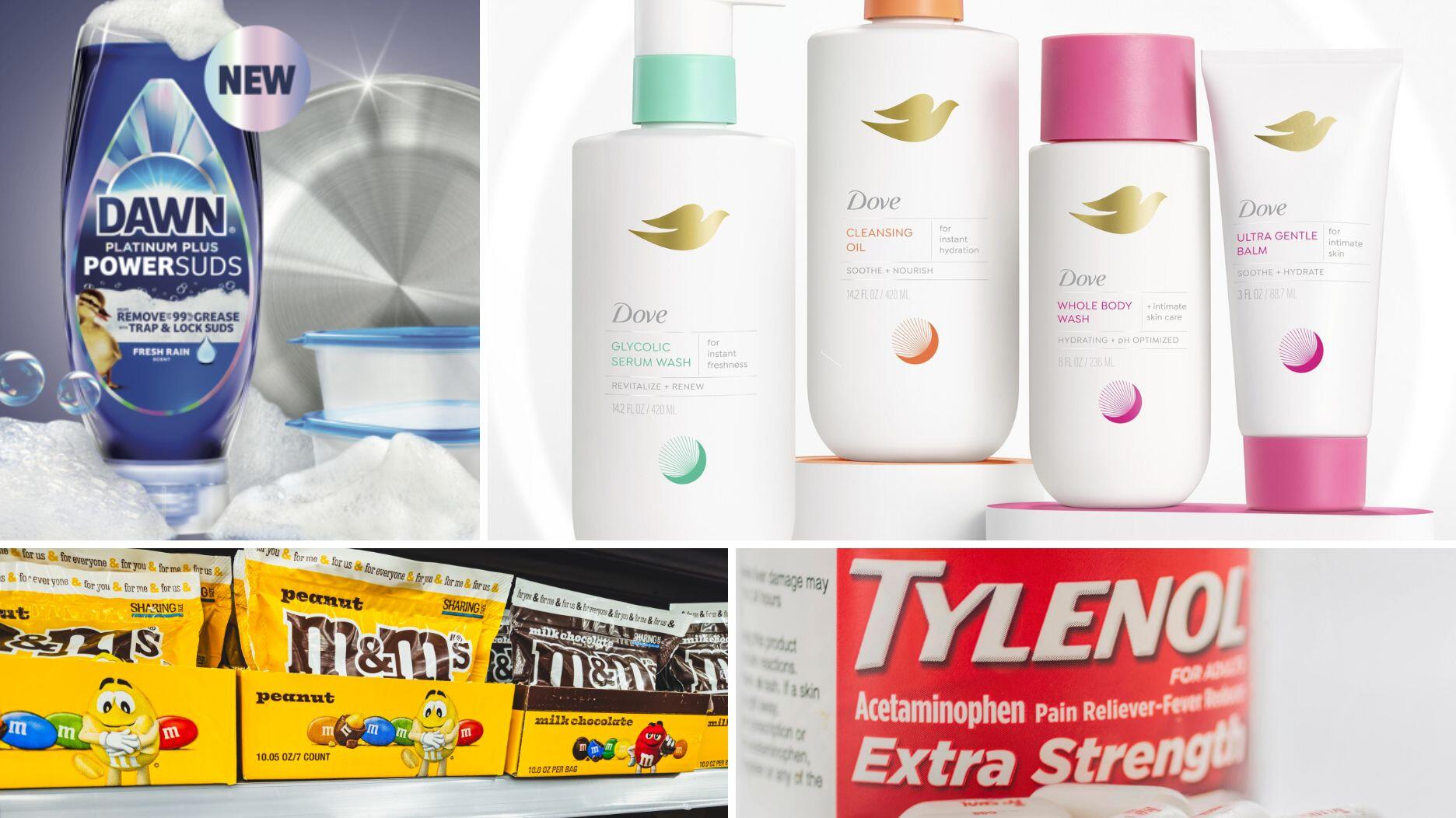Chicago police and members of the U.S. Marshals Service tracked down the 35-year-old suspect earlier this week in St. Louis.
5 Thoughts on Economic Recovery from NRF, IMF
In two separate reports, economists from the National Retail Federation and the International Monetary Fund discussed consumer confidence and preventing future pandemics.

New York—The COVID-19 pandemic has taken a severe toll on the global economy as the crucial policies guarding public health impact economic activity.
The global economy is expected to contract by 3 percent in 2020, higher than during the 2008 financial crisis, according to “World Economic Outlook, April 2020: The Great Lockdown,” a recent report by the International Monetary Fund.
And the retail industry has “taken the brunt” of the pandemic’s financial impact as many stores remain closed, the National Retail Federation said in its monthly economic review.
We took a look through the two reports and compiled five important takeaways.
Given the unprecedented nature of the situation, no one can say what recovery will look like with any certainty.
There is “extreme uncertainty” around the global growth forecast, said the IMF, as analysts grapple with unpredictable factors.
The effect on the economy depends on several variables, including the course of the pandemic and the effectiveness of containment efforts.
Analysts also need to consider the extent of supply disruptions and the volatility of commodity prices, as well as changes in the behaviors and spending patterns of consumers.
The IMF made the projections for its report using metrics like real GDP growth, the consumer price index, current account balance, unemployment, per capita GDP growth and fiscal balance.
Looking at the IMF’s baseline scenario, which assumes the pandemic ends in the second half of 2020 and containment efforts are gradually eased, the global economy is projected to grow by nearly 6 percent in 2021.
Though a partial recovery is projected with above-trend growth rates in 2021, GDP is predicted to remain below the pre-virus level, said the IMF.
Turning to retail specifically, NRF Chief Economist Jack Kleinhenz said in his organization’s report: “While we cannot be certain how quickly retail will recover, it is important to remember that many retailers are doing well, particularly those that have remained open.”
He added that retailers that were strong before the pandemic should make it through, and said most weaker retailers “will likely reorganize and emerge right-sized rather than disappear.”
Support from lawmakers is crucial to avoiding worst-case scenarios.
Worse outcomes than those outlined above are possible, said the IMF, especially without support from policymakers.
RELATED CONTENT: House Democrats Propose $3T Coronavirus Relief Bill
With the economy shut down, it will up to the world’s lawmakers to make sure people’s needs are met and businesses are able to reopen.
“Because the economic fallout is acute in specific
These targeted measures will be crucial to “keeping intact the economic and financial infrastructure of society.”
The NRF said in the United States, relief programs put in place by Congress and the Federal Reserve
have helped to mitigate economic decline.
Federal Reserve Chairman Jerome Powell said during remarks Wednesday, “Additional fiscal support could be costly but worth it if it helps avoid long-term economic damage and leaves us with a stronger recovery.”
We really are all in this together.
Cooperation is key to both containing the virus and generating an economic recovery.
The IMF stressed the need for countries to work together to slow the spread of the virus and to develop a vaccine and other therapies to combat COVID-19, adding that no country is safe from the pandemic until medical interventions are available.
The first priority should be securing adequate resources for health-care systems, said the IMF, including funding for additional testing and personal protective equipment.
Poorer countries with limited health-care capacity should be provided with equipment and medical expertise through grants and zero-interest emergency loans, the IMF said.
The report also suggested avoiding trade restrictions, especially on medicines and other essential supplies, so they can go where they are most needed.
“Necessary measures to reduce contagion and protect lives will take a short-term toll on economic activity but should also be seen as an important investment in long-term human and economic health,” the IMF said.
We need to start preparing now if we’re going to prevent the next pandemic.
If, as the old adage goes, the best defense is a good offense, then officials should already be thinking about how to stop something like this from happening again.
Resources should be directed to pandemic preparedness and to improving global health-care infrastructure, said the IMF.
The report suggested a system for an earlier, automatic exchange of information about “unusual” infections and the global stockpiling of personal protective equipment.
Clear protocols should be set regarding social distancing and how to transfer essential medical supplies across borders.
Consumers are cautious in the present, but hopeful for the future.
Bringing it back to retail, consumer confidence has taken a hit, said the NRF, but there may be a light at the end of the tunnel.
“Anxiety and fear are very strong emotions and consumer behavior may take time to adjust,” the federation stated in its report.
RELATED CONTENT: Squirrel Spotting: What Will Retail Look Like After COVID-19?
Consumer spending will likely suffer as a result of job losses, stock market volatility, a push toward increased saving, and the psychological effects of the pandemic.
The NRF report referenced the latest from The Conference Board, which publishes the Consumer Confidence Index, a barometer of how U.S. consumers are feeling about the economy, every month.
In April, the overall index was at 86.9, its lowest level since June 2014.
Consumers’ view of current conditions (known as the Present Situation Index) declined 90 points to reach 76.4, marking a record month-over-month drop.
But they were more optimistic about what conditions would be like six months from now, with the Expectations Index rising seven points to 93.8.
Few surveyed felt the economy was as bad off as it was during the Great Recession.
The NRF said it expects consumers to slowly ease back into shopping rather than make a speedy return—but it does expect them to return.
“In the end, shopping is more than a transaction,” the economist Kleinhenz said in an NRF press release.
“It is a social activity that is part of the fabric of American life, making it likely that consumers will want to return to normal shopping habits once the pandemic subsides and the economy fully reopens.”
The Latest
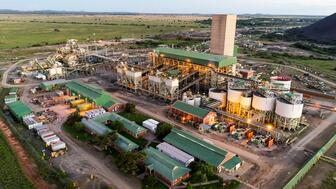
Owners of the Ekapa Mine reportedly filed for liquidation about a week after a mudslide trapped five workers who have yet to be found.
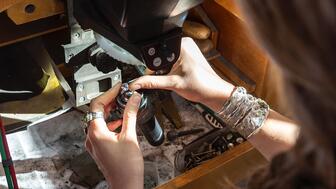
A 10-year alliance has also begun to address the shortage of bench jewelers through scholarships, enhanced programs, and updated equipment.

Every jeweler faces the same challenge: helping customers protect what they love. Here’s the solution designed for today’s jewelry business.
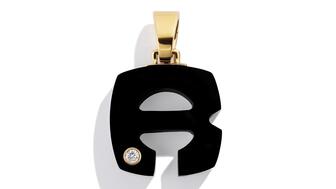
The “Splendente” collection has evolved to feature hardstone letter pendants, including our Piece of the Week, the onyx “R.”

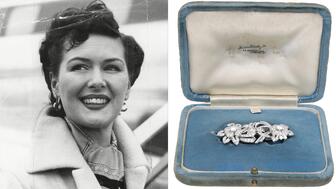
The jewelry collection belonged to “one of society's most glamorous and beautiful women of the mid-20th century,” said the auction house.
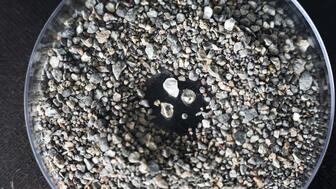
The update came as Anglo took its third write-down on the diamond miner and marketer, which lost more than $500 million in 2025.

With refreshed branding, a new website, updated courses, and a pathway for growth, DCA is dedicated to supporting retail staff development.
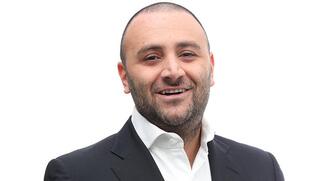
Emmanuel Raheb discusses the rise of “GEO” and the importance of having well-written, quality content on your website.
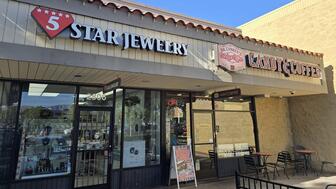
Each received around four years for burglarizing a jewelry store and a coffee shop in Simi Valley, California, last May.

Catherine Aulick, a GIA graduate, received the ninth and final Gianmaria Buccellati Foundation Award for Excellence in Jewelry Design.

We asked a jewelry historian, designer, bridal director, and wedding expert what’s trending in engagement rings. Here’s what they said.
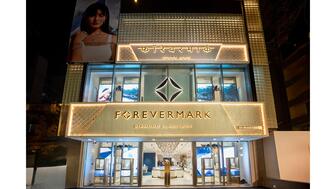
Experts from India weigh in the politics, policies, and market dynamics for diamantaires to monitor in 2026 and beyond.

Beth Gerstein discusses the vibe of the new store, what customers want when fine jewelry shopping today, and the details of “Date Night.”

Are arm bands poised to make a comeback? Has red-carpet jewelry become boring? Find out on the second episode of the “My Next Question” podcast.

The Swiss watchmaker is battling declining sales amid a rapid retail expansion, according to a Financial Times report.

The campaign celebrates Giustina Pavanello Rahaminov, the co-founder’s wife and matriarch of the family-owned brand, for her 88th birthday.
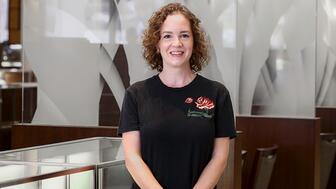
Rachel Bennett, a senior jeweler who has been with Borsheims since 2004, earned the award.
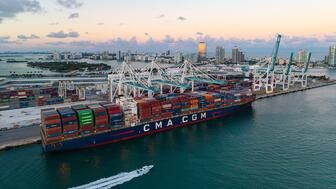
After the Supreme Court struck down the IEEPA tariffs, President Trump imposed a 10 percent tax on almost all imports via a different law.

The industry veteran, who was with The Edge Retail Academy for 14 years, joins her husband at the company he founded in 2022.

The vintage signed jewelry retailer chose Miami due to growing client demand in the city and the greater Latin American region.

Former Flight Club executive Jin Lee will bring his experience from the sneaker world to the pre-owned watch marketplace.
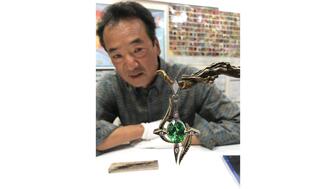
Sakamoto, who died in mid-January following a sudden illness, is remembered for his humility and his masterful, architectural designs.
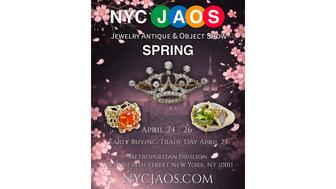
The April event will feature a new VIP shopping day requiring a special ticket.

Bulgari chose the British-Albanian singer-songwriter for her powerful and enduring voice in contemporary culture, the jeweler said.
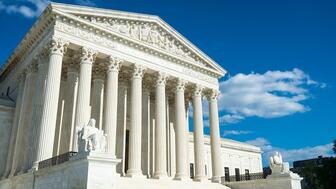
In a 6-3 ruling, the court said the president exceeded his authority when imposing sweeping tariffs under IEEPA.
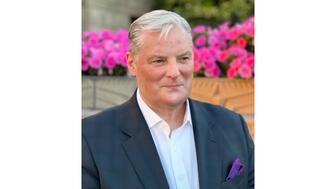
Smith encourages salespeople to ask customers questions that elicit the release of oxytocin, the brain’s “feel-good” chemical.











